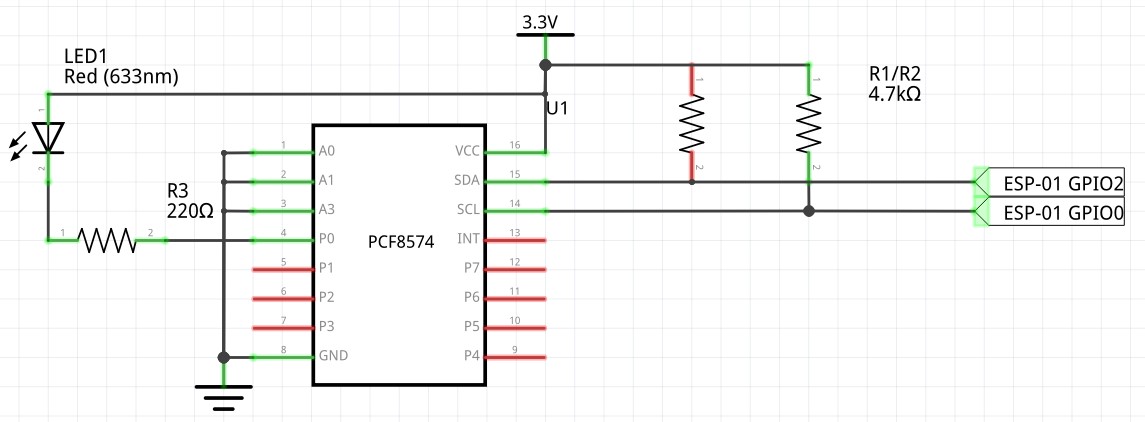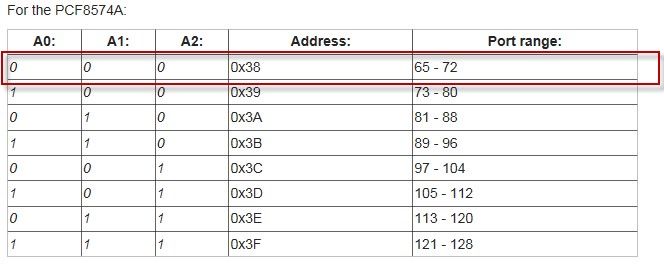use ESP-01 with Build 105
"Devices" Settings are SDA: GPIO-2 / SCL: GPIO-0
"Tools / I2C Scan" the return value are : 0x38
Device Setting :
Device : Switch input - PCF8578
Name: OUTPCF
Delay: 0
IDX/Var: 38
Port: 0
Value Name1: Switch
On the port "0" a LED is connected.
to control the port "0" use the command
http://<ESP IP address>/control?cmd=pcfgpio,0,1
The Return value are : { "log": "GPIO 0 Set to 1", "plugin": 19, "pin": 0, "mode": "output", "state": 1 }
But the port "0" don't worked
has an idea
Can you Hellllllppppppppppp

